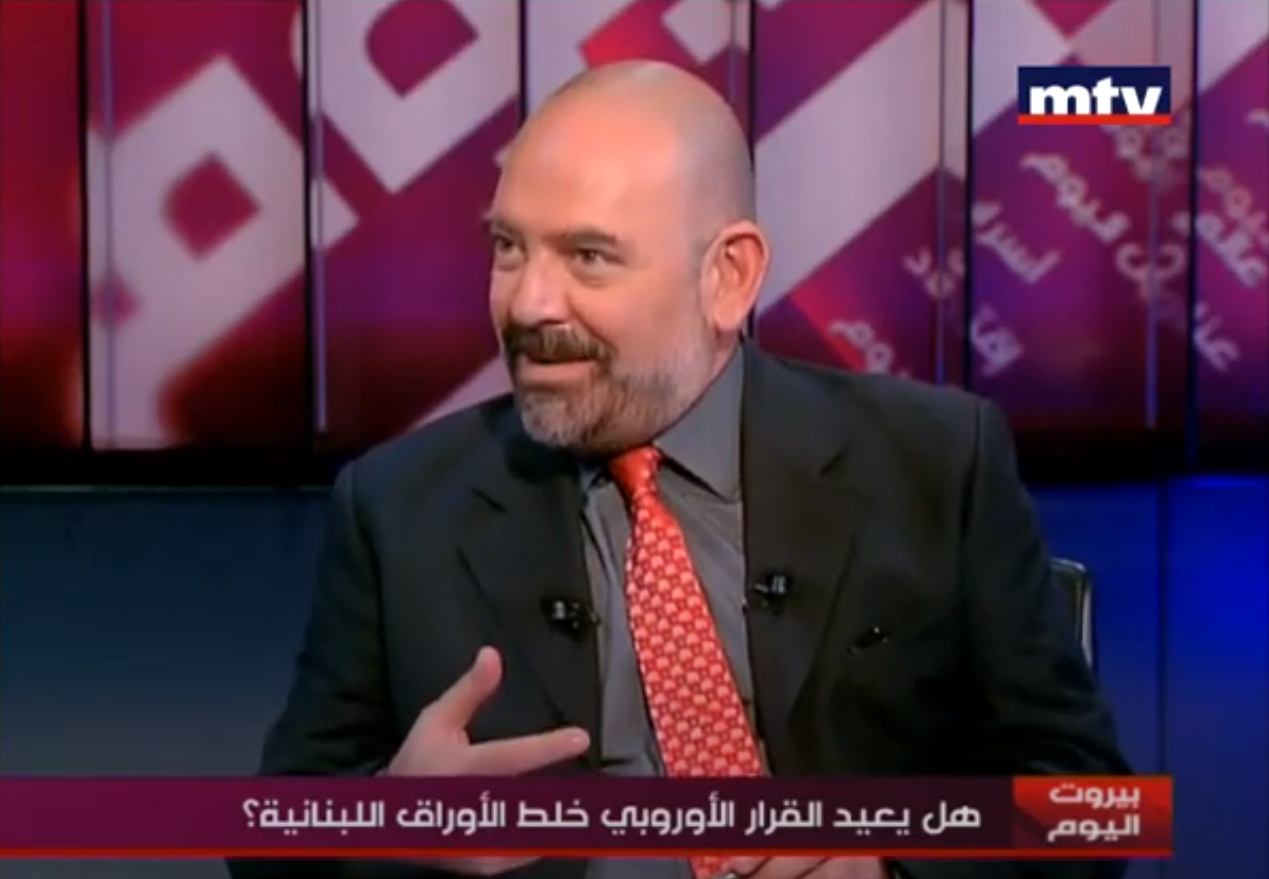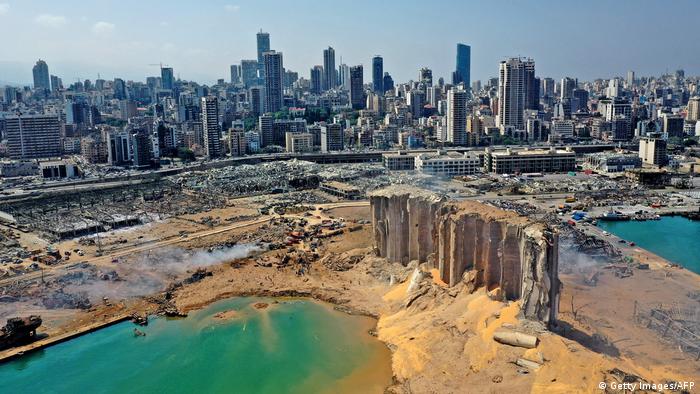
Opinion by Danielle Pletka and Michael Rubin Danielle Pletka - washingtonpost.com -- - Fear is the secret weapon of tyrants — but it is also their greatest weakness. Lokman Slim, who knew no fear, was kryptonite to Lebanese Hezbollah. Slim founded Hayya Bina (Let’s Go), an anti-Hezbollah organization. For decades, he shrugged off Hezbollah threats. He campaigned tirelessly in neighborhoods dominated by Hezbollah against the group’s efforts to subvert Lebanese democracy and to subordinate Lebanese national interests to Iran’s. He was found dead on Thursday, shot repeatedly in the head and back. Although Hezbollah released a statement condemning the killing, within Hezbollah circles there was a hint of celebration. Jawad Nasrallah, son of Hezbollah Secretary General Hassan Nasrallah, tweeted (and later deleted), “Loss of some is in reality an unexpected gain and kindness for others. #NoSorrow.” Others took to Slim’s Facebook page to celebrate his slaying, rejoicing that Hezbollah “took out the trash.”
In Slim’s death, we see a microcosm of what Lebanon has become. What was once the Paris of the Middle East has become a snuff film of a country, every hero meeting his death at the hands of the true powers that reign in Beirut. In the 1970s, it was Palestinian terror subjugating Lebanon. Then Syrians. In the 1980s, Israel plowed north and then south, trampling its enemies. Iran moved in at the same time, its Revolutionary Guard Corps building the group that would become the true bane of the Lebanese people, Hezbollah. Turkey now waits in the wings, especially in northern Lebanon. Every person who has stood up to these interlopers has met an untimely end — Prime Minister Rafiq al-Hariri most famously, Slim most recently. In 2005, in the wake of Lebanon’s Cedar Revolution, Slim joined a diverse group of Arab reformers in a project to debate a democratic future for their countries. The following year, he presented his thoughts about how to counter Hezbollah corruption at a conference at our think tank, the American Enterprise Institute. In a subsequent AEI essay, he wrote, “Until Lebanese intellectuals are willing to draw a line in the sand and not allow Hezbollah and other hired thugs to define the debate, there is little hope for real dissent and reform."

By By CHYRINE MEZHER -- breakingdefense.com -- BEIRUT: In this exclusive interview, the commander of the Lebanese Air Force, Brig. Gen. Ziad Haykal, tells Breaking D about the current strategies adopted to boost Lebanon’s ISR capabilities, the challenges encountered along the way and the Air Force’s plans for the future. Three Phase Plan:
Recently, the Army Command developed a strategic plan aiming at boosting the country’s aerial reconnaissance capabilities to the highest level possible for its land and naval border regiments, with the goal of surveilling the land and sea borders and curbing illegal activities, while also protecting gas platforms in the future. “This came on the heels of devoting our aerial reconnaissance capabilities to monitoring activities and movements of terrorists on the northern and northeastern borders, throughout the years of 2009 and until 2017 — which happened to be the end of “Fajr al-Joroud” Operation,” he explained. Back in August 2017, the Lebanese Army launched Operation Fajr al-Joroud — Dawn of the Outskirts — against Daesh (ISIS) positions on the outskirts of al-Qaa and Ras Baalbek towns, killing 35 militants in the process as they sought to eradicate the last vestiges of militant threats to national security. Divided into three stages, the plan links reconnaissance aircraft of all kinds with functional cutting operations rooms on one hand, and the army, air force and navy command operations rooms on the other. “This facilitates the decision-making process by increasing the awareness of activities around the target,” he said.

By NAJIA AL-HOUSSARI & TAREK ALI AHMAD -- BEIRUT/LONDON: Lebanese author and activist Luqman Slim, 59, was found dead on Thursday morning in the southern region of Zahrani. His killing was the first of a Lebanese Shiite anti-Hezbollah figure since 2004. News of Slim’s disappearance broke on Thursday morning after nothing was heard from him on Wednesday evening after he started travelling home from visiting family in the southern village of Niha. Rasha Al-Ameer, Slim’s sister, announced his disappearance on social media, asking for information to help recover him. But in the early hours of Thursday morning, the news changed from a missing person to an assassination after Slim’s body was found in his car in one of the orchards of the Al-Adousiya area. “We are demanding a thorough investigation which should determine the motive behind the killing and hold the perpetrators accountable,” Sherif Mansour, the MENA Program Coordinator for the Committee to Protect Journalists, told Arab News. “The bottom line is that censorship including against critical journalists by fractions within Lebanon should not go unpunished and what we hope to see is that Hezbollah, especially because of their prior threats, will be questioned and pressured to provide answers.” “In terms of censorship, we hope that the various Lebanese authorities would respect any media institution that has worked to cover not just this issue but others that are currently facing censorship by Hezbollah affiliates in Lebanon so that they can continue to operate without harassment or retaliation.”
A protester holds a picture of Luqman Slim, who has been found dead in his car, during a protest in front of the Justice Palace in Beirut on Feb. 4, 2021. (AP) Forensic doctor Afif Khafaja said that “the body was hit with five bullets, four in the head and one in the back,” which is an uncommon method of assassination. No identification cards were found on the body. Slim’s family used a mobile application to locate his cell phone, which was found tossed in one of the orchards near the house he was at in Niha. His killing is the culmination of a series of threats Slim has received for many years — which intensified in recent months — for his strong anti-Hezbollah stance. He was accused by Hezbollah and its members of being an “Israeli agent” or “a Shiite of the American Embassy.” The activist chose not to hide in his home in the region of Ghobeiry despite the threats he had received, refusing to let intimidation prevent him from publishing his ideas. Threats were sent through flyers that were thrown into his garden and read “muffler” and “Hezbollah is the nation’s honor.”

by reliefweb.int -- Over half a million children are at risk of child labour and child marriage as their families struggle six months on from the Beirut blast, World Vision warns today. The explosion, which killed more than 200 people on August 4 last year, compounded a crisis in Lebanon which had already been exacerbated by COVID-19. In Beirut schools are closed, many health facilities are inaccessible, running water is scarce and with lockdown, many people cannot work. World Vision estimates that 541,000 children are therefore at risk of early marriage and being forced into labour as parents struggle to put food on the table. The number of children and caregivers reporting mental health concerns is also on the rise, putting children at risk of long-term psychological challenges.
Rami Shamma, Operations Director at World Vision Lebanon, says: “Six months ago, families in Beirut who were already struggling to survive COVID-19 and an economic crisis were forced to deal with another catastrophe in the form of a devastating explosion. Six months later they have not recovered. In fact, things are worse for them. We call for international solidarity for the people of Lebanon, they are in no less of a crisis situation now than they were on August 4th,.” World Vision is urging the international community to invest in education and to prioritise child protection and mental health support for those struggling in the aftermath of the blast.
Khazen History


Historical Feature:
Churches and Monasteries of the Khazen family

St. Anthony of Padua Church in Ballouneh
Mar Abda Church in Bakaatit Kanaan
Saint Michael Church in Bkaatouta
Saint Therese Church in Qolayaat
Saint Simeon Stylites (مار سمعان العامودي) Church In Ajaltoun
Virgin Mary Church (سيدة المعونات) in Sheilé
Assumption of Mary Church in Ballouneh
1 - The sword of the Maronite Prince
2 - LES KHAZEN CONSULS DE FRANCE
3 - LES MARONITES & LES KHAZEN
4 - LES MAAN & LES KHAZEN
5 - ORIGINE DE LA FAMILLE
Population Movements to Keserwan - The Khazens and The Maans
ما جاء عن الثورة في المقاطعة الكسروانية
ثورة أهالي كسروان على المشايخ الخوازنة وأسبابها
Origins of the "Prince of Maronite" Title
Growing diversity: the Khazin sheiks and the clergy in the first decades of the 18th century
Historical Members:
Barbar Beik El Khazen [English]
Patriach Toubia Kaiss El Khazen(Biography & Life Part1 Part2) (Arabic)
Patriach Youssef Dargham El Khazen (Cont'd)
Cheikh Bishara Jafal El Khazen
Patriarch Youssef Raji El Khazen
The Martyrs Cheikh Philippe & Cheikh Farid El Khazen
Cheikh Nawfal El Khazen (Consul De France)
Cheikh Hossun El Khazen (Consul De France)
Cheikh Abou-Nawfal El Khazen (Consul De France)
Cheikh Francis Abee Nader & his son Yousef
Cheikh Abou-Kanso El Khazen (Consul De France)
Cheikh Abou Nader El Khazen
Cheikh Chafic El Khazen
Cheikh Keserwan El Khazen
Cheikh Serhal El Khazen [English]
Cheikh Rafiq El Khazen [English]
Cheikh Hanna El Khazen
Cheikha Arzi El Khazen
Marie El Khazen